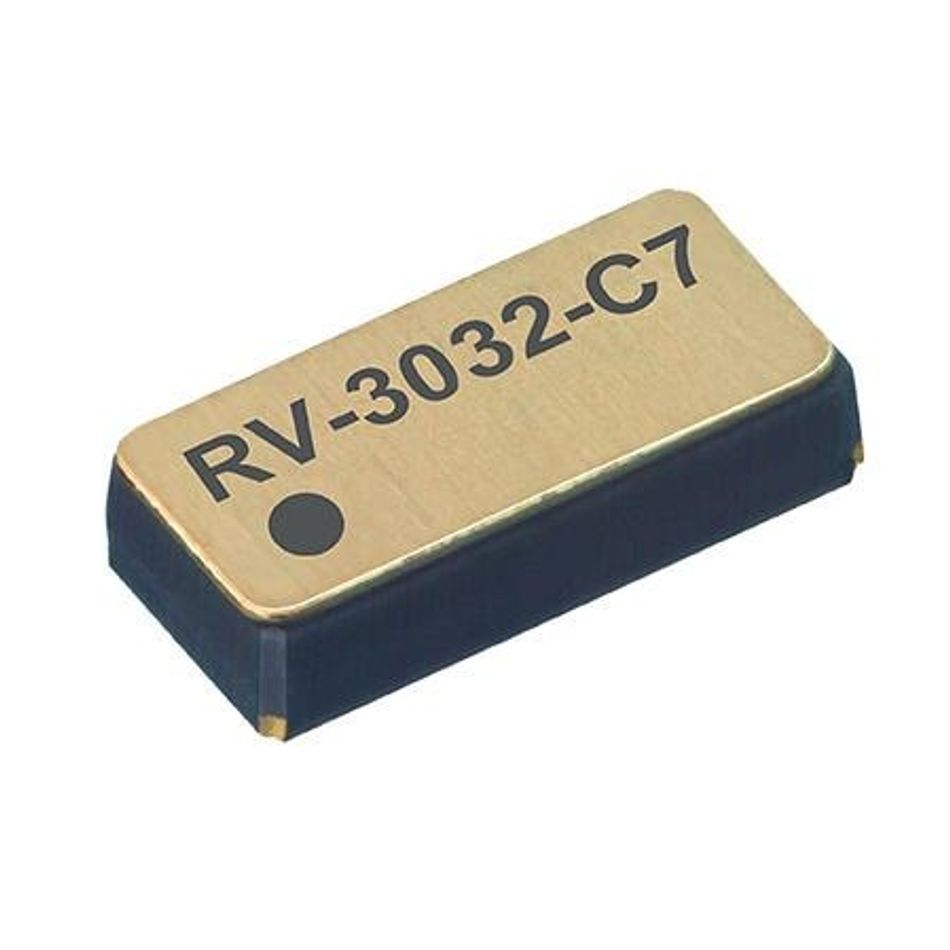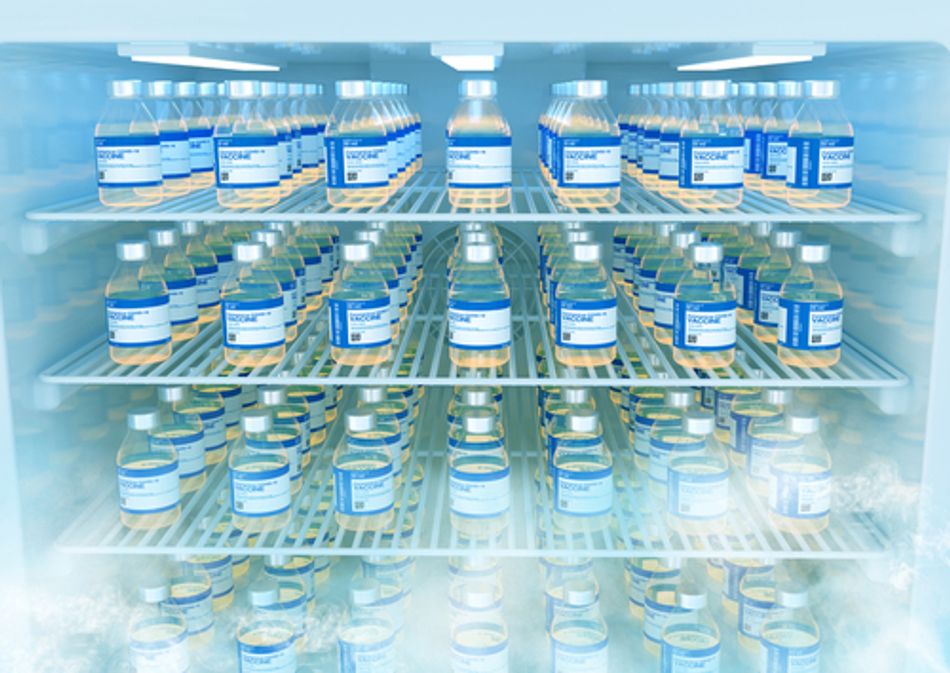Enhancing Cold Chain Efficiency: The Role of Real-Time Clocks in Condition Tracking and Predictive Maintenance
This article discusses the role of RTCs in condition tracking and predictive maintenance to enhance cold chain efficiency. Moreover, it details how Micro Crystal RV-3032-C7 RTC Module stands out as an ideal solution.
The cold chain is a critical component of numerous industries that ensures the safe and effective delivery of temperature-sensitive products. In the transportation and storage of temperature-sensitive products such as pharmaceuticals, vaccines, food, and chemicals, continuous monitoring is imperative. The cold chain relies on precise temperature control to prevent spoilage, maintain product efficacy, and comply with regulatory standards.
IoT-enabled sensors are very important in cold chain operations as they help monitor temperature, humidity, and other critical parameters throughout the supply chain. These sensors transmit data to central systems for stakeholders to track the condition of their products in real time and take immediate action if any deviations occur. However, one of the biggest challenges in implementing such systems is maintaining long-term operation with minimal power consumption. In this regard, energy-efficient components, such as ultra-low-power Real-Time Clocks (RTCs), play a critical role in prolonging battery life and improving the reliability of cold chain monitoring systems.
This article discusses the role of RTCs in condition tracking and predictive maintenance to enhance cold chain efficiency. Moreover, it details how Micro Crystal RV-3032-C7 RTC Module stands out as an ideal solution.
Challenges in Cold Chain Monitoring and Condition Tracking
Maintaining the integrity of products within the cold chain is a complex undertaking with several potential challenges.
Temperature Fluctuations and Compliance
A primary challenge in cold chain monitoring is the prevention of temperature excursions, as temperature-sensitive products must be stored and transported within specific temperature ranges to maintain their quality, efficacy, and safety. Deviations from these ranges, even for short periods, can have detrimental effects.
Another challenge is compliance with regulatory compliance, as many industries, such as pharmaceuticals and food, are subject to stringent regulations that dictate temperature control requirements. Continuous temperature monitoring and accurate record-keeping are essential for demonstrating compliance and ensuring product safety.
Logistics and Environmental Factors
Cold chain logistics involve multiple long-distance transportation phases, including air, road, and sea. Each phase presents risks of transit delays, equipment malfunctions, and exposure to unexpected environmental conditions. For instance, ambient temperature variations, humidity levels, and exposure to sunlight can all affect the temperature of products in transit or storage. Power failures in refrigeration units can also compromise product integrity, making reliable monitoring solutions that can withstand these environmental challenges and provide accurate data under a wide range of conditions a necessity.
Power Consumption in IIoT Devices
Most IIoT-enabled cold chain monitoring devices operate on battery power. These devices are expected to function continuously, sometimes for years, without frequent battery replacements. Ultra-low power operation is essential to extend the battery life of these devices and minimize maintenance requirements. RTC modules with ultra-low current consumption ensure that monitoring systems remain operational without excessive power drain.
The Role of RTC Modules in IIoT and Predictive Maintenance
RTC modules help address the challenges of cold chain monitoring discussed above and enable effective predictive maintenance strategies. RTCs contribute to the efficiency and reliability of cold chain operations by providing accurate timekeeping, facilitating power savings, and ensuring synchronized communication.
In the cold chain, it is essential to know precisely when temperature excursions or other critical events occur. RTC modules provide precise timestamps for condition monitoring data that allow stakeholders to track the sequence of events and identify the root causes of any problems. Moreover, timestamps are also important for regulatory compliance. Accurate records of temperature and other parameters, along with the precise time of any deviations, are necessary to demonstrate adherence to regulatory requirements.
The wake-up functionality of RTC modules contributes to power savings in IoT devices as this feature allows microcontrollers and other system components to remain in a low-power sleep mode for extended periods, only activating when necessary to collect or transmit data. For instance, in cold chain monitoring applications, devices may only need to take temperature readings or transmit data at specific intervals. During the intervening periods, the system can remain in sleep mode, consuming minimal power.
Cold chain monitoring systems often involve multiple devices and stakeholders. It is essential that these systems operate on a synchronized timeline to ensure effective coordination and data sharing. In this regard, RTCs provide synchronized communication across connected cold chain monitoring networks and ensure that data collected by different devices is time-aligned and can be easily compared and analyzed. This advantage of RTCs is particularly important in complex supply chains where goods may pass through multiple hands and monitoring points.
Micro Crystal RV-3032-C7 RTC Module
The Micro Crystal RV-3032-C7 is an RTC module designed for IIoT, industrial, automotive, healthcare, and portable applications. It incorporates an integrated CMOS circuit and an XTAL, operating under vacuum in a hermetically sealed ceramic package with a metal lid. It offers a combination of high precision, ultra-low power consumption, and advanced features that make it ideal for cold chain monitoring applications. For instance, RV-3032-C7 provides an exceptional time accuracy of ±2.5 ppm or ±0.22 sec per day time deviation over the industrial temperature range of -40°C to +85°C. This high level of accuracy provides reliable tracking of events and compliance with regulatory requirements. The module also supports an extended range from +85°C to +105°C with ±20 ppm or ±1.7 sec per day time deviation.
The RV-3032-C7 is designed for ultra-low power operation, with a current consumption of only 160 nA at 3V in timekeeping mode. This minimal power draw significantly extends the battery life of cold chain monitoring devices, reduces the need for frequent battery replacements, and minimizes maintenance costs.
Along with timekeeping capabilities, the RV-3032-C7 has a unique feature of a built-in 12-bit temperature sensor that enables real-time, high-resolution temperature monitoring of important valuable data for cold chain management. The temperature sensor also has an interrupt function. This unique feature of Micro Crystal RV-3032-C7 simplifies the design of cold chain monitoring devices by eliminating the need for a separate temperature sensor, reducing component count and board space requirements.
The RV-3032-C7 also includes a programmable temperature alarm function, which can be used to alert stakeholders when temperature thresholds are exceeded. These alarms can be configured to trigger an interrupt signal to provide immediate notification of critical events and accurate timestamps for record.
The RV-3032-C7 is housed in a compact SMD package, making it easy to integrate into existing IIoT systems. It utilizes an I²C-bus interface for smooth communication with microcontrollers and other devices. The small form factor and standard interface of the RV-3032-C7 simplify the design and manufacturing of cold chain monitoring devices. Moreover, its compatibility with existing systems reduces development time and costs.
Real-World Applications of RTCs in Cold Chain Monitoring
Micro Crystal RV-3032-C7 plays a vital role in a wide range of cold chain monitoring applications. For example, the transportation of pharmaceuticals and vaccines is a critical application of cold chain monitoring. These products are highly sensitive to temperature variations, and excursions outside the recommended range can make them ineffective or even harmful. RV-3032-C7 helps maintain accurate temperature records during the global distribution of pharmaceuticals and vaccines, provides precise timestamps for temperature data, and enables stakeholders to track the conditions under which these products are transported to confirm that they stay within the required temperature limits. Moreover, the programmable temperature alarms of the RV-3032-C7 provide an additional layer of protection, providing timely alerts of any temperature deviations.
The food and beverage industry also relies heavily on cold chain management to ensure product freshness, safety, and quality. Many food products require strict temperature control to prevent spoilage and maintain their nutritional value from the farm to the table. RV-3032-C7 helps monitor the temperature of food and beverages during storage and transportation. It also helps to ensure compliance with food safety regulations and prevent the growth of harmful bacteria. Moreover, accurate temperature records can be used to optimize storage conditions and minimize waste.
Similarly, RTCs are used to monitor the storage conditions of chemicals and biologics to ensure that they are maintained within the required temperature limits to help prevent degradation, maintain product quality, and ensure the safety of workers handling these materials.
Conclusion
Real-Time Clock (RTC) modules are important components in modern cold chain monitoring systems. They provide accurate timekeeping, enable power savings, and facilitate synchronized communication, all of which are essential for ensuring the efficiency and reliability of cold chain operations. In this regard, the Micro Crystal RV-3032-C7 stands out as an ideal solution, offering ultra-low power operation, high precision, and integrated temperature sensing capabilities.
Engineers and developers seeking to enhance the efficiency and reliability of their IIoT applications by utilizing advanced RTC solutions like RV-3032-C7 can visit the Micro Crystal website or contact their team to learn more about cutting-edge RTC solutions.
References
Micro Crystal. [Online] Available at: https://www.microcrystal.com/en/ (Accessed on February 2, 2025)
RV-3032-C7. [Online] Available at: https://www.microcrystal.com/en/products/real-time-clock-rtc-modules/rv-3032-c7 (Accessed on February 2, 2025)
RV-3032-C7 Real-Time Clock Module with I2C-Bus. [Online] Available at: https://www.microcrystal.com/fileadmin/Media/Products/RTC/Datasheet/RV-3032-C7.pdf (Accessed on February 2, 2025
RV-3032-C7 Application Manual. [Online] Available at: https://www.microcrystal.com/fileadmin/Media/Products/RTC/App.Manual/RV-3032-C7_App-Manual.pdf (Accessed on February 2, 2025)



